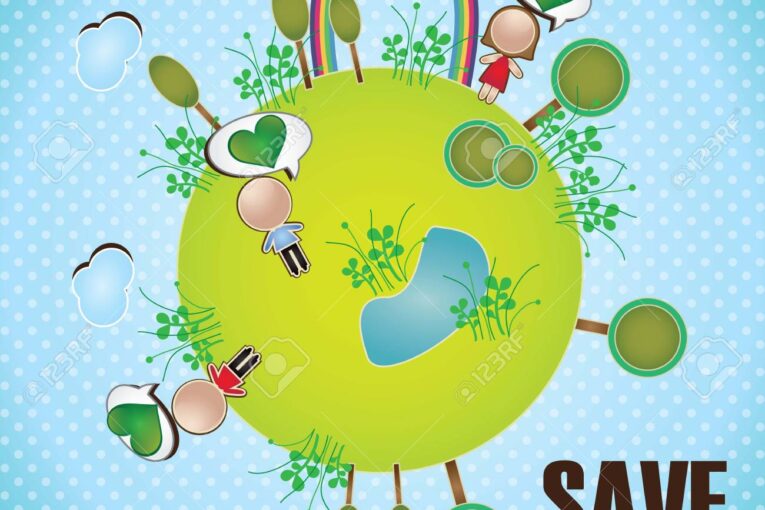
Dr. Arvind Kumar, President, India Water Foundation
“The goal is to find the most appropriate blend of green and blue investments to maximize benefits and system efficiency while minimizing costs and trades offs. We do not yet fully recognize and incorporate the importance of ecosystem services in planning and investment. How investment in a Green and Blue Economy pays off. A less energy-intensive, more labour intensive, less destructive, more sustainable, less exclusive, more integrative approach will lead to more jobs, strengthen intra-and intergenerational equity, and empower people to economic participation and greater self-determination.”

Natural Ecosystems provides us with a myriad of services ranging from food security, climate regulation, better lives, and livelihoods. Yet despite this the last three to four decades have seen increasing degradation of environment. This in turn, is threatening the livelihoods of millions of people around the world who depend on these critical ecosystems for their primary source of food job security both directly and indirectly. With a growing population, set to rise from seven billion today to over nine billion by 2050, these pressures and impacts are likely to intensify unless the world becomes more intelligent about managing these essential resources. We must strengthen the key sectors that are interlinked with the environment that is the blue world to make a transition towards a Green Economy.
Worldwide consumption and production a driving force of the global economy rest on the use of the natural environment and resources in a way that continues to have destructive impacts on the planet. Economic and social progress over the last century has been accompanied by environmental degradation that is endangering the very systems on which our future development indeed, our very survival depends. The emergence of COVID-19 has underscored the relationship between people and nature and revealed the fundamental tenets of the trade-off we consistently face, humans have unlimited needs, but the planet has limited capacity to satisfy them. We must try to understand and appreciate the limits to which humans can push nature before the impact is negative. The pandemic offers countries an opportunity to build recovery plans that will reverse current trends and change our consumption and production patterns towards a more sustainable future. We must build back better and transition our production and consumption patterns towards more sustainable practices.

Japan and the Republic of Korea have committed to achieve net zero emissions by 2050 as part of the global effort to slow global warming and meet the goals of the Paris Agreement on climate change. Each year, an estimated one third of all food produced – equivalent to 1.3 billion tonnes worth around $1 trillion – ends up rotting in the bins of consumers and retailers or spoiling due to poor transportation and harvesting practices. Should the global population reach 9.6 billion by 2050, the equivalent of almost three planets could be required to provide the natural resources needed to sustain current lifestyles. Sustainable consumption and production are about doing more and better with less. It is also about decoupling economic growth from environmental degradation, increasing resource efficiency, and promoting sustainable lifestyles. Considering green- blue economy in the context of sustainable development it fosters linkages between Goal 6, Goal 7, 8, 11, 13 and 17 emphasizing that it should contribute to adequate quantity and quality drinking water, sustained economic growth, enhancing social inclusion, improving human welfare, building resilient communities and creating opportunities for employment and decent work for all, eradicating poverty, while maintaining the healthy functioning of the Earth’s ecosystems by creating sustainable partnerships.
NEOM city in Saudi Arabia will be the first city in the world to implement a carbon-free system. For countries, greening their economies means diversification, stronger resilience to economic or environmental shocks and sustainable prosperity. By improving crop and livestock production practices for higher food security and farmer income while reducing emissions, Protecting, and re‐establishing forests for their economic and ecosystem services, including as carbon stocks, Expanding electricity generation from renewable sources of energy. We need to reduce our water footprint and blue our economies by adopting Nature Based Solutions to enhance water availability by soil moisture retention, groundwater recharge, improve water quality by natural and constructed wetlands and riparian buffer strips and reduce risks associated with water‐related disasters and climate change by floodplain restoration, green roofs. Agriculture is the biggest user of water worldwide, and irrigation now claims close to 70 percent of all freshwater for human use. The efficient management of our shared natural resources, and the way we dispose of toxic waste and pollutants, are important targets to achieve this goal. Encouraging industries, businesses, and consumers to recycle and reduce waste is equally important, as is supporting developing countries to move towards more sustainable patterns of consumption by 2030. Fair sharing of the globe’s limited freshwater resources will be key in reducing the threat posed by water scarcity on biodiversity and human welfare. International collaboration in implementing these measures will be crucial. The current crisis is an opportunity for a profound, systemic shift to a more Blue and Green economy that works for both people and the planet. NBS include green infrastructure that can substitute, augment or work in parallel with blue infrastructure in a cost‐effective manner. The goal is to find the most appropriate blend of green and blue investments to maximize benefits and system efficiency while minimizing costs and trade‐offs. We do not yet fully recognize and incorporate the importance of ecosystem services in planning and investment. How investment in a Green and Blue Economy pays off. A less energy-intensive, more labour intensive, less destructive, more sustainable, less exclusive, more integrative approach will lead to more jobs, strengthen intra-and intergenerational equity, and empower people to economic participation and greater self-determination.
Does it sound like a Utopian dream or can be transformed in a reality?



